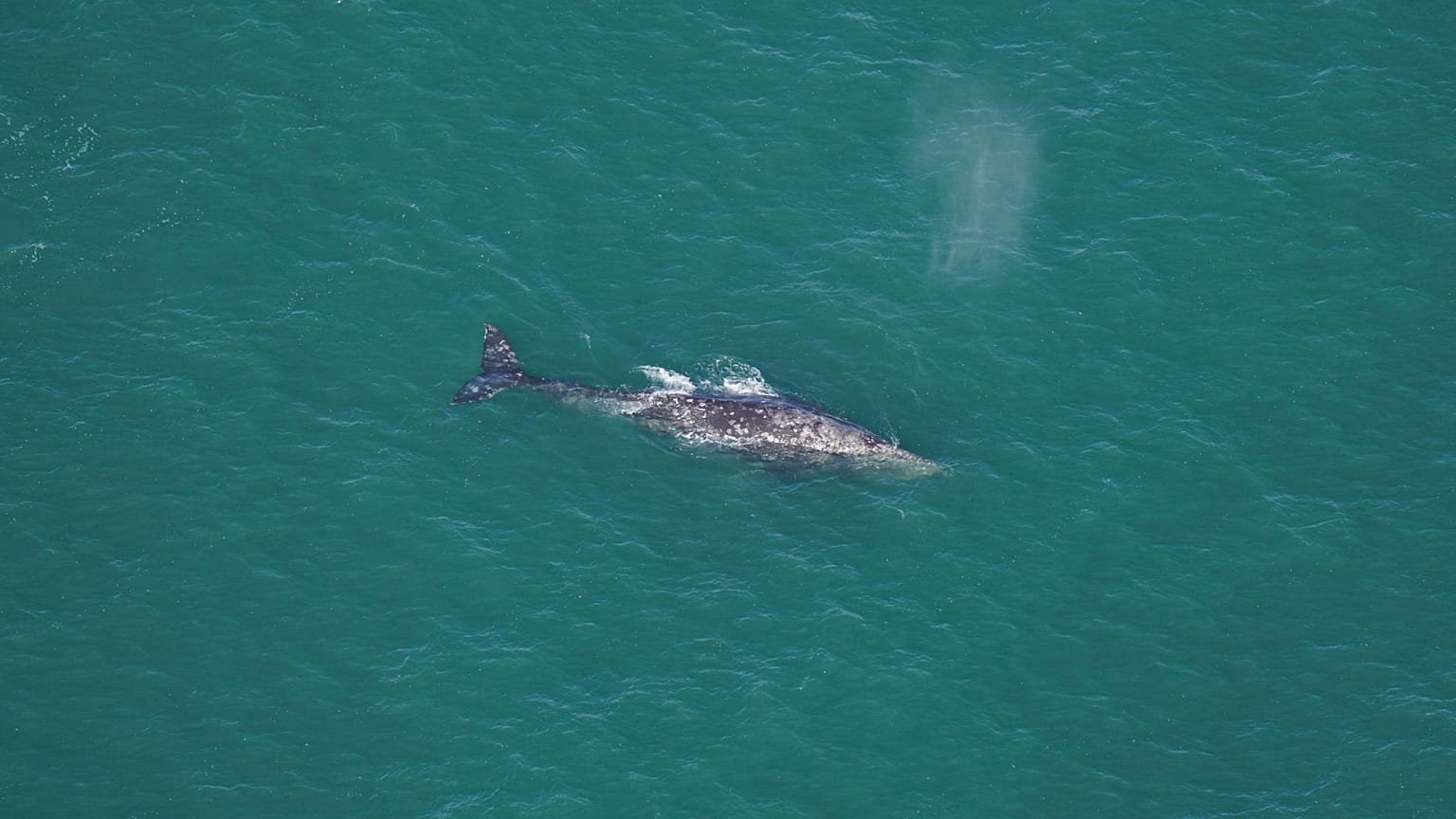This marine animal was almost hunted to extinction during the era of commercial whaling.
Scientists have confirmed the presence of a whale off New England that went extinct in the Atlantic Ocean two centuries ago. It is an exciting discovery, but one they said illustrates the impact of climate change on sea life.
 ADVERTISEMENT
ADVERTISEMENT
 ADVERTISEMENT
ADVERTISEMENT
Researchers with the New England Aquarium in Boston found the gray whale while flying 50 kilometres south of Nantucket, Massachusetts in the US on 1 March.
The whale, which can weigh up to 27,215 kilograms, typically lives in the northern Pacific Ocean. This particular whale may have been in Atlantic waters for a couple of months as scientists believe it was spotted off the coast of Florida in December.
How did researchers spot the gray whale?
The gray whale vanished from the Atlantic Ocean by the 18th century, but there have been five documented observations of the animal in Atlantic and Mediterranean waters in the last 15 years, the aquarium said in a statement.
The researchers who found the animal off Massachusetts said they were sceptical at first, but after circling the area for 45 minutes, they were able to take photographs that confirmed it was indeed a gray whale.
"I didn't want to say out loud what it was, because it seemed crazy," said Orla O'Brien, an associate research scientist with the Anderson Cabot Center for Ocean Life at the New England Aquarium.
“My brain was trying to process what I was seeing, because this animal was something that should not really exist in these waters,” said Research Technician Kate Laemmle.
“We were laughing because of how wild and exciting this was - to see an animal that disappeared from the Atlantic hundreds of years ago!”
This sighting is a sign of climate change
Scientists said they were thrilled to see the animal, but its presence probably has to do with the warming of the planet.
The Northwest Passage, which connects the Atlantic and Pacific oceans through the Arctic Ocean in Canada, has been ice-free in the summertime in recent years, they said.
That means gray whales can more freely travel through the passage in the summer when normally they would have been blocked, the scientists said.
O'Brien said the animal's arrival off New England serves "as a reminder of how quickly marine species respond to climate change, given the chance."
Gray whales almost went extinct
Gray whales were almost hunted to extinction during the era of commercial whaling.
Today, the whales have recovered to the point that they are considered a species of "least concern" by the International Union for Conservation of Nature. The organisation considers the western population of the whales that live off Asia to be endangered, however.
They can be identified by their lack of a dorsal fin and mottled appearance that makes them very different from whales more commonly seen off New England such as the humpback whale and minke whale.
They also sound very different - while humpback whales are known for their haunting songs, gray whales make gurgles, grunts and croaks.

















